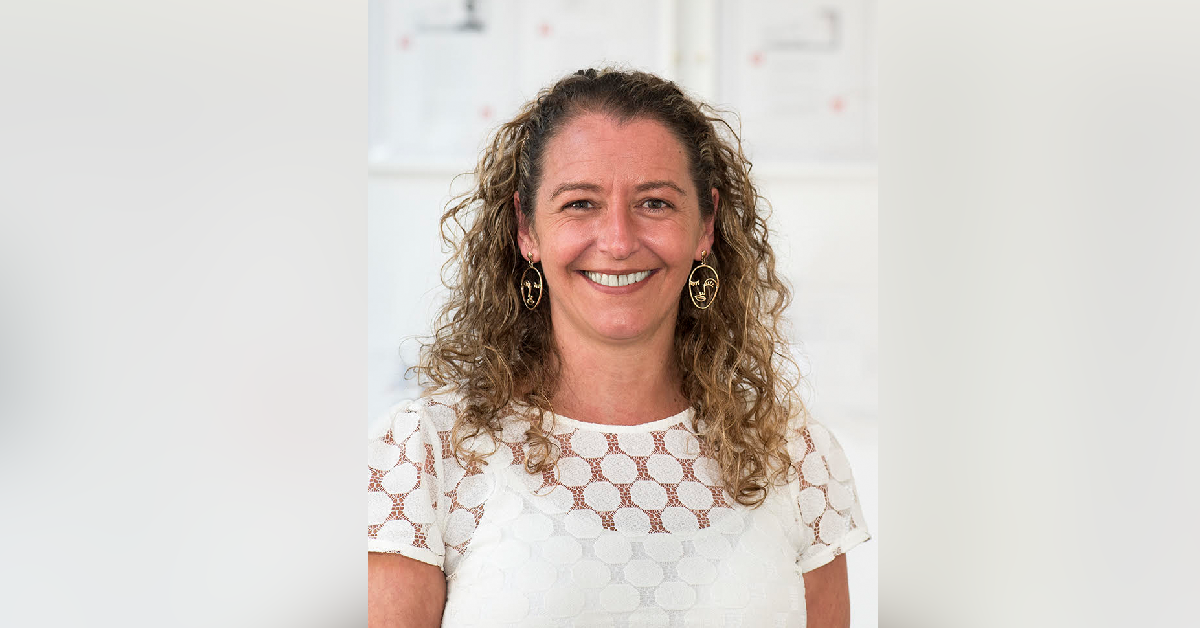
We spoke to Lisa O’Connor – member of the National Association of Teachers of Religious Education (NATRE) Executive and representative of Humanists UK on the RE Council. We discussed why rigorous RE is essential, how humanists can help make it more inclusive, and why humanism should be taught about as a positive, and rational non-religious approach to life.
Hi Lisa, why is it essential that children are taught a broad RE curriculum?
Young people have to make their way in a world where people have different beliefs, and being able to navigate this matters greatly. As an atheist and a humanist, I obviously don’t believe that a god exists, but religion undeniably does. It impacts the lives of young people on a daily basis. Without broad and rigorous RE lessons it’s easy to perceive religion as monolithic and fixed, but this is uninformed and unhelpful both for religious and non-religious students alike. I think it’s really important for young people who are religious to begin to understand the way that historical, cultural, and political factors impact belief and practice within their own traditions. It’s equally important that young people with non-religious worldviews develop an understanding of religion and the impact of religious devotion and expression on believers.
What obstacles do we face in having humanism taught about on a par with religions in RE in England and Wales?
It’s important to note that due to what’s known as ‘local determination’ there is no one single RE curriculum taught in all schools in England and Wales. This in itself can be a barrier to humanism being taught in schools.
On the positive side, under the current arrangements many SACREs (Standing Advisory Councils on RE, i.e. local statutory bodies that are responsible for RE) do include humanism on their Agreed Syllabus, and have humanists sitting on the SACRE and recognise the importance of reflecting non-religious worldviews. Having said that, under the current arrangements there is no guarantee that humanist voices will be heard at local level, or that humanism will be included in the Agreed Syllabus.
The law is very clear that humanism should be taught in RE – Humanists UK won recognition for humanism in RE in a legal case in 2015. Subsequently, after the Vale of Glamorgan SACRE refused to allow a humanist to join the RE body, the Welsh Government stated that humanists must be given the right to sit on RE bodies, and in fact, the Welsh Government is now changing the wording of the law to make sure that this is clear. Logically, this ruling should apply to England too. If you’re a humanist and interested in ensuring education about religion or belief is broad and balanced where you live, consider learning about how you can join your local SACRE today.
Could you tell us about your school workshops?
One of the really impressive things about Humanists UK is how seriously they take their education work. Understanding Humanism is a brilliant online resource which is really valued by the RE community. Through the Understanding Humanism website, schools are able to book speakers for their students, but also find tailor-made CPD opportunities for their staff. These workshops can be for 3–4 members of a teaching team or for larger groups of trainee teachers in universities or school training consortiums. A typical session will have a focus identified in advance, and will be a combination of subject knowledge and practical teaching with support from Understanding Humanism resources. There’s almost always a lively Q&A session and I find that most often teachers are interested in my personal views on the topic at hand, and how that relates to broader humanist principles.
Tell us about your work as a humanist teacher in the National Association of Teachers of Religious Education (NATRE).
NATRE is the national subject association for RE teachers and I’m privileged to have a place on the current executive. The executive works to support teachers RE in a variety of ways; for example, we contribute to national consultations, write resources to support teachers and leaders in planning, delivering, and evaluating their provision, and contribute to CPD. We’re a genuinely inclusive team in terms of experience, sector, and worldviews which means that in all discussions there will be humanist views recognised and valued. It also provides me personally with a good opportunity for constructive interfaith work and might be used as a positive example of people with different worldviews working together productively on matters of faith and ethics.
When did you begin to identify as a humanist?
I strongly rejected belief in a god in early adolescence, mostly due to a combination of family tragedies, awareness of the sheer extent of suffering in the world, and the transition to a secondary school that had greater religious diversity than my primary, leading me to vigorously question the truth of Christianity.
It wasn’t until I became an RS teacher and GCSE examiner in the early 2000s that I felt the need to explicitly define myself as a humanist. The impetus was marking one too many papers that claimed that atheists ‘didn’t believe in anything’ and I knew that this didn’t fit with my self-identity. I knew that my ethical and philosophical beliefs were seriously held and rationally justified but the term used for them was framed as a negative.
What attracts you to humanism?
Humanism is a positive life stance that focuses on and celebrates human potential, uniqueness, and achievement. My non-belief in god is less significant for me than my positive beliefs that people working together, informed by principles of empathy, rationality, and a positive regard for others, can help make a better world. It’s been important for me to be a member of Humanists UK and my local humanist groups in order to take part in collective action and campaigning on issues that matter to me.
Which Humanists UK campaigns have been closest to your heart?
As a feminist and humanist working in education the most important campaigns for me are those that seek to reduce religious privilege and influence on issues around equal rights, bodily autonomy, and education. I’m proud of the work that we do around Religious Education and as a representative on the RE Council I know how well regarded our contributions are. The current campaign around abortion rights in Northern Ireland is incredibly important to me as I believe no woman should have her bodily autonomy denied as a result of historical religious influence. Equally the campaign to legalise assisted dying is close to my heart having seen first-hand the intense suffering of loved ones towards the end of their life.

